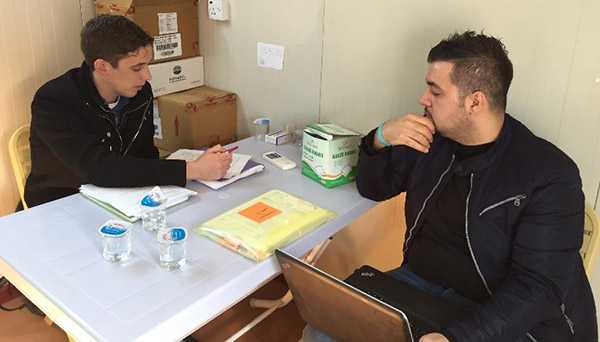Early Warning Alert and Response Network Put the Brakes on Deadly Diseases
Fast detection of a polio outbreak in Somalia helped responders stop the disease from spreading quickly. Without Somalia’s surveillance system—Early Warning Alert and Response Network (EWARN)—a highly infectious disease may have taken root.
EWARN temporarily tracks health conditions during humanitarian emergencies and is often the only source for health data. It fills the gaps in existing public health surveillance systems that may have limited or no capacity during a health crisis.
EWARN has detected several major outbreaks, including polio in Syria, and measles and cholera in Somalia, evidence that the system works well.
As part of an EWARN technical working group overseen by the World Health Organization (WHO), CDC’s Emergency Response and Recovery Branch (ERRB) has participated in developing global EWARN implementation guidelines and recently collaborated with the WHO Eastern Mediterranean Region Office (EMRO) to develop new standardized EWARN evaluation guidance.
With CDC support to improve EWARN guidance, the system will be much more effective in detecting infectious disease outbreaks early and responding promptly to save the lives of vulnerable people around the world.

ERRB EIS officer Andrew Boyd interviews a data manager participating in EWARN surveillance system at a clinic providing care to internally displaced persons.
- Page last reviewed: December 12, 2016
- Page last updated: December 12, 2016
- Content source:


 ShareCompartir
ShareCompartir